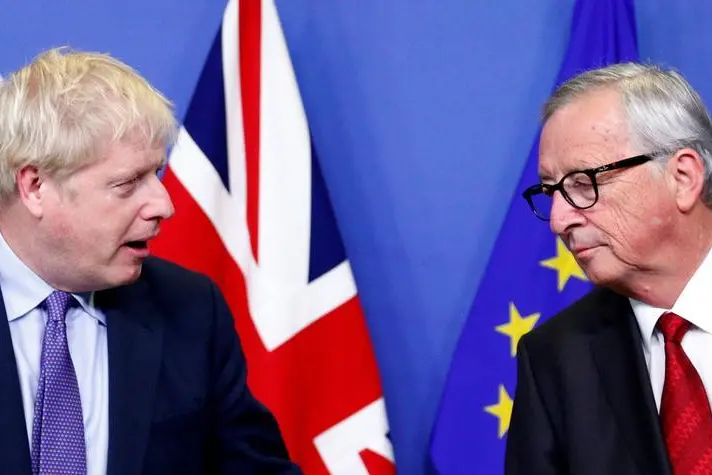PHOTO
BRUSSELS - Britain has refused a European Union push to negotiate a defence and security treaty as part of their new relationship after Brexit, according to sources and documents, highlighting how far apart the two sides are on the eve of new talks.
The two sides start negotiating their new relationship on Monday following Britain's departure from the EU last month after 50 years of membership.
London presented its stance for the talks on Thursday which out it on a collision course with the bloc.
While the EU wants to include external security and defence as one of parallel strands of talks which would also cover trade, fisheries and student exchanges, among other topics, London refuses to seek a legal agreement on that.
"Britain correctly identifies it as our interest and they are playing hard to get," said an EU diplomat of the tussle even before the actual talks begin.
Britain was one of the EU's leading military powers before it left after three years of tortuous divorce talks. It has nuclear arms, a permanent seat at the U.N. Security Council, and access to the Five Eyes spy network with the United States.
These assets make the EU willing to lock Britain into a close and legally binding security partnership.
But a British government source confirmed London was unwilling to follow that path, in large part because it already has a stake in European security through its membership of NATO.
"We expect to cooperate closely with our allies, including the EU," the source said. "We don't think we need an institutional treaty framework to achieve this."
While the joint mandate of the EU27 includes a separate section dedicated to a desired future security partnership, the London one pointedly lacks a corresponding section.
London is only looking to discuss legal agreements on much narrower elements of security cooperation, including to be able to share sensitive and classified information with the bloc.
Given how far apart the two sides seem for now, few in Brussels believe they would be able to agree a broad new deal from security to trade by the end of the year, when Britain's status-quo transition ends and Brexit becomes reality.
Chances for this were "slim", the EU's chief negotiator Michel Barnier told a closed-door meeting of 27 national envoys to Brussels this week, according to a diplomat briefed on the discussion.
(Additional reporting by Elizabeth Piper Editing by John Chalmers and Angus MacSwan) ((gabriela.baczynska@thomsonreuters.com; +32 2 287 68 39; Reuters Messaging: gabriela.baczynska.thomsonreuters.com@reuters.net))





















